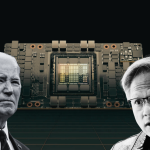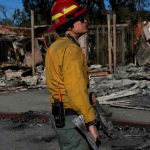
Apollo 11 astronaut Michael Collins, who piloted the 1969 mission to the moon has died aged 90 after a valiant battle with cancer.
General Collins piloted the command ship from which Neil Armstrong and Buzz Aldrin left to make their historic first steps on the moon. His family announced his death on Thursday morning (AEDT).
“We regret to share that our beloved father and grandfather passed away today, after a valiant battle with cancer. He spent his final days peacefully, with his family by his side,” a statement from the family said.
The family asked for privacy to mourn, and encouraged fans and friends of General Collins to remember his “sharp wit, his quiet sense of purpose, and his wise perspective, gained from both looking back at Earth from the vantage point of space and gazing across calm waters from the deck of his fishing boat”.
General Collins was part of the three-man Apollo 11 crew that effectively ended the space race between the US and Russia and fulfilled President John F Kennedy’s challenge to reach the moon by the end of the 1960s.
Although he travelled some 383,000 kilometres to the moon and came within 111 kilometres, General Collins never set foot on the lunar surface like his crew mates Dr Aldrin and Lieutenant Armstrong, who died in 2012.
None of the men flew in space after the Apollo 11 mission.
“It’s human nature to stretch, to go, to see, to understand,” General Collins said on the 10th anniversary of the moon landing in 1979.
“Exploration is not a choice really – it’s an imperative, and it’s simply a matter of timing as to when the option is exercised.”
General Collins spent the eight-day mission piloting the command module. While Lieutenant Armstrong and Dr Aldrin descended to the moon’s surface in the lunar lander Eagle, General Collins remained alone in the command module Columbia.
“I guess you’re about the only person around that doesn’t have TV coverage of the scene,” mission control radioed General Collins after the landing.
“That’s all right. I don’t mind a bit,” he responded.
General Collins was alone for nearly 28 hours before Lieutenant Armstrong and Dr Aldrin finished their tasks on the moon’s surface and lifted off in the lunar lander.
General Collins was responsible for re-docking the two spacecraft before the men could begin heading back to Earth.
Had something gone wrong and Dr Aldrin and Lieutenant Armstrong been stuck on the moon’s surface – a real fear – General Collins would have returned to Earth alone.
While he was frequently asked if he regretted not landing on the moon, that was never an option for General Collins, at least not on Apollo 11.
General Collins’ specialty was as a command module pilot, a job he compared to being the base-camp operator on a mountain climbing expedition. As a result, it meant he wasn’t considered to take part in the July 20, 1969, landing.
“I know that I would be a liar or a fool if I said that I have the best of the three Apollo 11 seats, but I can say with truth and equanimity that I am perfectly satisfied with the one I have,” he wrote in his 1974 autobiography Carrying the Fire.
“This venture has been structured for three men, and I consider my third to be as necessary as either of the other two.”
NASA shared the news of General Collins’ death to its 46 millions followers on social media on Thursday (US time).
“We mourn the passing of Apollo 11 astronaut Michael Collins, who piloted humanity’s first voyage to the surface of another world. An advocate for exploration, [General Collins] inspired generations and his legacy propels us further into the cosmos,” the tweet read.
-with AAP
The post Apollo 11 moon landing astronaut Michael Collins dies appeared first on The New Daily.
Powered by WPeMatico





